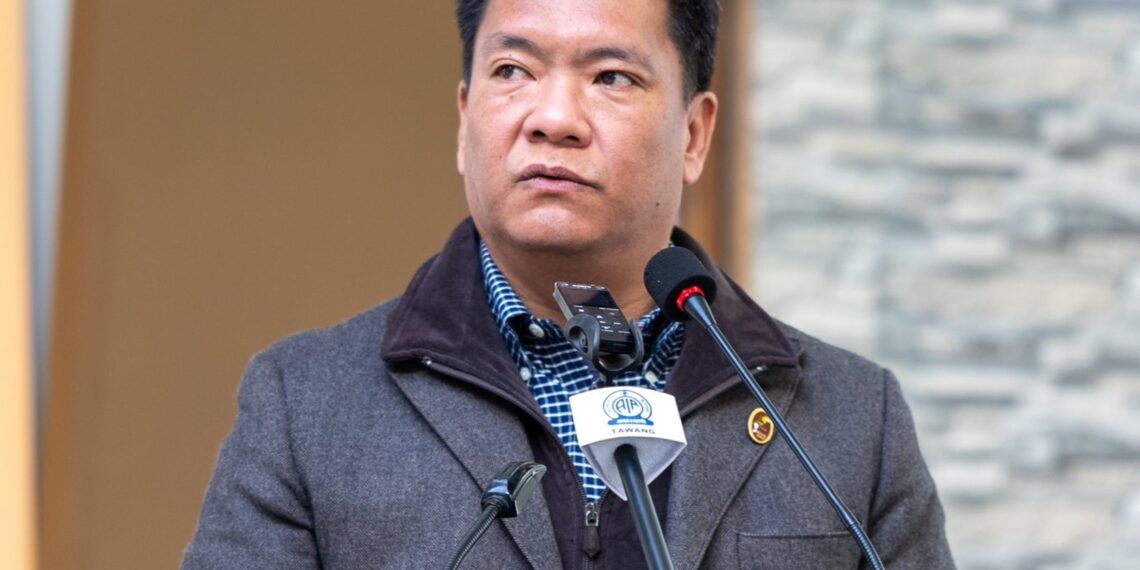ITANAGAR: Arunachal Pradesh Chief Minister Pema Khandu stated that the Siang Upper Multipurpose Project (SUMP), estimated to cost Rs 1.13 lakh crore, is not only aimed at generating electricity but also crucial for maintaining the natural flow of the Siang River and mitigating potential flood risks posed by water releases from China.
Khandu’s comments follow China’s approval of the construction of the world’s largest dam on the Brahmaputra River in Tibet, close to the Indian border.
The dam, which is expected to cost USD 137 billion, will be built at a strategic gorge in the Himalayas where the Brahmaputra takes a sharp U-turn before entering Arunachal Pradesh and flowing into Bangladesh.
Speaking to this news wire, Khandu clarified that the SUMP, with an installed capacity of 11,000 MW, serves more than just power generation.
ALSO READ: Chinese-origin assault rifles seized in Arunachal Pradesh’s Changlang district
“The primary aim of the project is to protect the Siang River and the communities reliant on it, ensuring a consistent water flow throughout the year,” he explained.
He described the project as a matter of national importance, with hydropower generation being a secondary objective.
The project’s feasibility report is yet to be completed, amid strong opposition from local communities who are concerned about displacement, loss of livelihoods, and environmental impacts.
Khandu also warned of severe consequences if China’s plans to divert water from the Brahmaputra into its arid regions proceed without proper safeguards.
He pointed out that such a move could drastically reduce the flow of the Siang River during winter months, potentially reducing the river to the point where it could be crossed on foot.
ALSO READ: Centre provides additional aid to Arunachal Pradesh beyond standard allocations
In contrast, the proposed Siang project would create a reservoir capable of storing 9 billion cubic meters of water, ensuring year-round river flow and providing a buffer against potential flooding from sudden water releases by Chinese dams.
While acknowledging ongoing bilateral discussions between India and China, Khandu stressed the need for caution.
“China is unpredictable, and we must remain vigilant. We cannot afford to take chances with national security and the well-being of our people,” he warned.
The Chinese hydropower project on the Yarlung Zangbo River (the Tibetan name for the Brahmaputra) is projected to generate over 300 billion kWh of electricity annually, enough to power over 300 million people.
With an investment exceeding USD 137 billion, the project would surpass China’s Three Gorges Dam as the largest infrastructure project globally.
In response to local concerns, Khandu assured that thorough surveys would be conducted before finalizing any plans for the Siang project.
He confirmed that a public hearing would be held to address the concerns of the local population, stressing that the government would ensure transparency.
“We are a democratic country and do not believe in imposing decisions on our people,” he said, although he criticized certain activists for spreading misinformation about the project.
Khandu also discussed the state’s broader hydropower development strategy, mentioning recent approvals for two major projects: the 186 MW Tato-I Hydro Electric Project and the 240 MW Heo Hydro Electric Project, with combined investments of over Rs 3,600 crore.
ALSO READ: Nagaland: NSCN/GPRN mourns the passing of former Prime Minister Manmohan Singh
He highlighted that Arunachal Pradesh is collaborating with key national companies like NHPC, NEEPCO, THDCIL, and SJVN to develop 13 hydropower projects totaling more than 11,000 MW, which will significantly boost the state’s revenue.
Furthermore, Khandu announced that the Centre has allocated Rs 4,136 crore for the development of hydroelectric projects across the Northeast, with a goal of 15,000 MW capacity by 2032.
He also noted that the Centre has agreed to increase the Local Area Development Fund (LADF) contribution to over 2% for power projects in the region.
“Arunachal Pradesh is poised to become the powerhouse of the nation, with a focus on safeguarding the interests of our people and the environment,” Khandu concluded.















